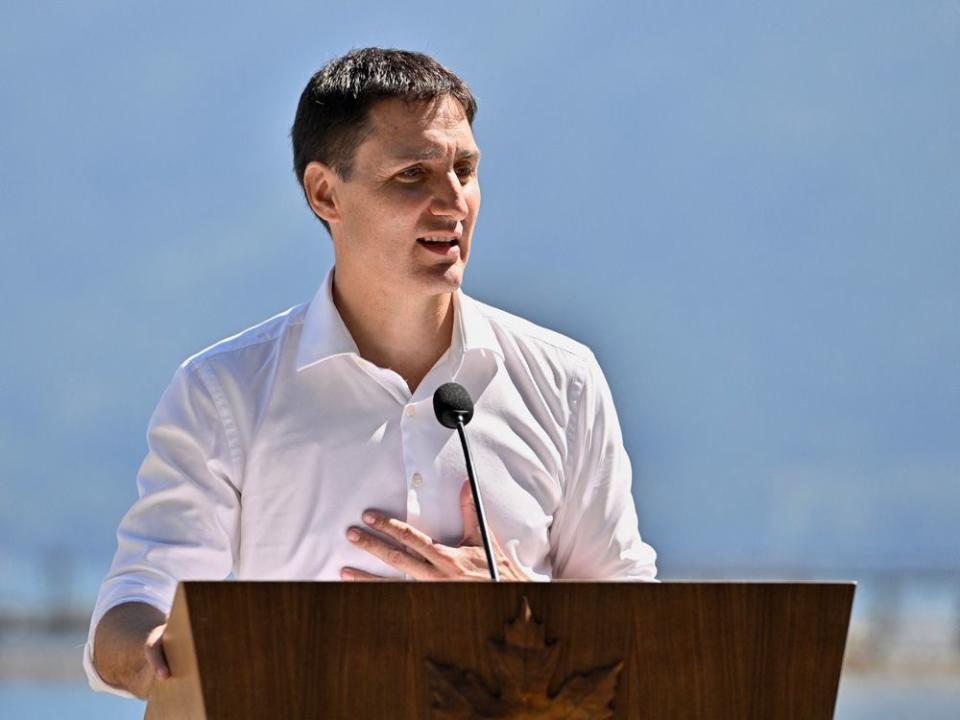Joe Oliver: Needed badly — economic reality and common sense

Like other western nations, Canada is suffering through a period of economic irrationality, rooted in progressive ideology, green fixation and groupthink, rather than data, economic principles and common sense. Recently, the consequences of policies based on delusion and fantasy have come home to roost, demanding a fundamental rethink of cherished shibboleths.
The global energy crisis is the best example. Germany now seems to understand that her policy of Energiewende or “energy transition” from fossil fuels and nuclear power to intermittent and costly renewables has weakened it geopolitically and economically. The U.K. may soon lift its moratorium on shale fracking because of soaring energy prices. U.S. Democrats are waking up to political reality: a likely battering in the Congressional elections, in part for curbing fossil fuel drilling, which has compromised America’s prosperity and national security. As gas prices soar in this country, too, more and more Canadians are finally coming to see that their energy economy has been sacrificed on the green altar of Prime Minister Trudeau’s unreasonable hostility to the development of the third and fourth largest proven oil and gas reserves in the world.
Moreover, Canadians aren’t in a terribly forgiving mood — not with the highest inflation in 40 years ravaging their standard of living and forcing the Bank of Canada to hike interest rates aggressively, risking a recession, which in fact RBC is already predicting for next year.
Public discontent is unmistakable in a Postmedia-Léger survey released earlier this month. Fully 55 per cent of Canadians disapprove of the prime minister’s performance either strongly or somewhat. More than 60 per cent believe he has been divisive and 40 per cent feel Canada has become a worse country since his election. Remarkably, only four per cent of respondents identified action on climate change as one of his greatest accomplishments — perhaps because his government has missed every emissions target it set. Nor are they impressed by the hypocritical high-carbon lifestyle he and his ministers pursue, with the fleeting exception of Steven Guilbeault, who wanted to travel the country by train but had to give up his plans for a cross-country trip because it was “not logistically feasible.”
How ironic it is that 96 per cent of Canadians do not give Trudeau credit for dealing with an existential climate emergency! He is clearly personally obsessed with the issue. He has caused hundreds of billions of dollars in opportunity costs and direct expenses to be spent on it. He has imposed punitive taxes and intrusive regulations in its name. He has all but declared war on the energy sector and he has undermined national unity and destroyed well-paying middle-class jobs. And he has made clear for the world to see our pitiful inability to ship oil and gas to allies in their moment of dire need. To rephrase Winston Churchill, never in Canadian history has so much harm been inflicted by so few on so many for so little gain.
Joe Oliver: Thanks, but no thanks: Conservatives don’t need to dilute their principles to win
Joe Oliver: The Liberals' 2022 budget could have been even worse
There are compelling British and American parallels to his story in terms of both destructive energy policies and plummeting public support. Boris Johnson was brought down by his tenuous relationship with the truth, glaring double standards for thee and me, personal scandals, administrative incompetence and policy failures. That Johnson is gone but Trudeau remains demonstrates that the mother of parliaments takes ministerial responsibility much more seriously than our own House of Commons does. In the U.S., meanwhile, Joe Biden’s approval rating is at a miserable 32 per cent, largely because of skyrocketing inflation and a general sense of national decline.
If his polls don’t improve, then, like the president, Trudeau risks rejection by his own party prior to the next election. Even before then, however, he may, like Johnson, awaken one day to the realization that he is well and truly done.
This brings us to the conviction among nevertheless jittery progressives that although Pierre Poilievre may win the Conservative leadership, he cannot win the general election. They allege his policies are too disruptive of convention, even though he is not a social conservative. But bien pensants underestimate how fed up Canadians are with the Liberal government’s overarching incompetence, high taxes, stifling regulations, vacuous virtue signalling, short shrift to the needs of blue-collar workers compared to favoured identity groups and contempt for freedom and personal agency for those with divergent views. When economic times are tough, style doesn’t cut it. A frustrated public is increasingly looking to Conservatives for sound management and economic policies that address its real needs.
Canada’s economy does not have to be the worst performing among the world’s wealthiest countries over the next 40 years, as the OECD predicts. But without an urgent plan to improve productivity, control spending and encourage investment by lowering taxes, reducing regulations and developing natural resources, that may well be our fate. Does anyone seriously believe our current government understands the problem or is up to the job of fixing it?
Joe Oliver was minister of natural resources and then minister of finance in the Harper government.

 Yahoo Finance
Yahoo Finance 